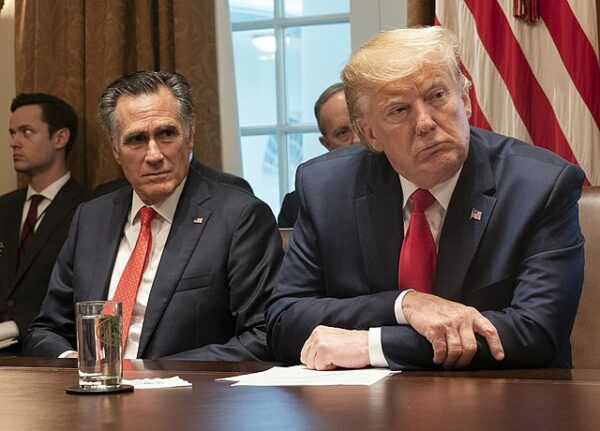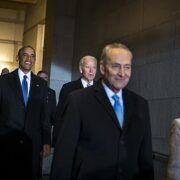
In a Friday op-ed for New York Magazine, Elie Honig, a former colleague of Manhattan District Attorney Alvin Bragg, criticized Bragg’s “contorted” case against former President Donald Trump, describing it as an “ill-conceived, unjustified mess.”
Honig, who served as an Assistant United States Attorney for the Southern District of New York from 2004 to 2012 and now works as a legal analyst for CNN, questioned the legitimacy of the case. He highlighted its “unprecedented” and “obscure” nature, labeling the charges as “inventive” and “inflated,” labeling them “bespoke” so that the Democratic DA could go after the GOP frontrunner.
Most importantly, Honig noted, the DA’s charges against Trump push the outer boundaries of the law and due process. That’s not on the jury. That’s on the prosecutors who chose to bring the case and the judge who let it play out as it did.
The district attorney’s press office and its flaks often proclaim that falsification of business records charges are “commonplace” and, indeed, the office’s “bread and butter.” That’s true only if you draw definitional lines so broad as to render them meaningless. Of course the DA charges falsification quite frequently; virtually any fraud case involves some sort of fake documentation.
But when you impose meaningful search parameters, the truth emerges: The charges against Trump are obscure, and nearly entirely unprecedented. In fact, no state prosecutor — in New York, or Wyoming, or anywhere — has ever charged federal election laws as a direct or predicate state crime, against anyone, for anything. None. Ever. Even putting aside the specifics of election law, the Manhattan DA itself almost never brings any case in which falsification of business records is the only charge.
Standing alone, falsification charges would have been mere misdemeanors under New York law, which posed two problems for the DA. First, nobody cares about a misdemeanor, and it would be laughable to bring the first-ever charge against a former president for a trifling offense that falls within the same technical criminal classification as shoplifting a Snapple and a bag of Cheetos from a bodega. Second, the statute of limitations on a misdemeanor — two years — likely has long expired on Trump’s conduct, which dates to 2016 and 2017.
So, to inflate the charges up to the lowest-level felony (Class E, on a scale of Class A through E) — and to electroshock them back to life within the longer felony statute of limitations — the DA alleged that the falsification of business records was committed “with intent to commit another crime.” Here, according to prosecutors, the “another crime” is a New York State election-law violation, which in turn incorporates three separate “unlawful means”: federal campaign crimes, tax crimes, and falsification of still more documents. Inexcusably, the DA refused to specify what those unlawful means actually were — and the judge declined to force them to pony up — until right before closing arguments. So much for the constitutional obligation to provide notice to the defendant of the accusations against him in advance of trial. (This, folks, is what indictments are for.)
Charles Cooke, the editor of The National Review, argues that liberals, if they truly believe what they say, should be appalled by the case.
If you read that Elie Honig piece and are fine with what he describes, then you ought to stop calling yourself a “liberal.” https://t.co/uCbk9YpXa9
— Charles C. W. Cooke (@charlescwcooke) May 31, 2024
“I am against this behavior. Indeed, that I am against this behavior is why I often call myself a “liberal” or a “classical liberal” or an “old-style liberal.” This is not how I think the government should behave, and my view on that does not change depending on whether I like the target, believe him to be a good person, or have a direct or indirect political interest in his case. Phrases such as “push the outer boundaries of the law and due process,” “so broad as to render them meaningless,” “obscure, and nearly entirely unprecedented,” and “inflate the charges” and “electroshock them back to life” give me the willies. So do sentences that read, “the DA refused to specify what those unlawful means actually were.” That is true when they are written about some local nobody and it is true when they are about the former president of the United States. It is true when they are applied to someone of excellent character and it is true when they are applied to a moral reprobate. It is even true when the person who is being railroaded has tried to railroad others.
That is liberalism, in the old sense of the word. What Elie Honig records in his piece is not liberalism. It is something else — something grotesque. If you read his words and find yourself indifferent to them — or, even, pleased by them — that is your prerogative. But please understand what you are, what you now stand for, and what you are certainly not — which is a person who believes in equality, the rule of law, the American system of justice, and, frankly, anything much at all beyond a craven short-term desire to win.”
Democrats should refer to Trump as a convicted felon at every opportunity. Repetition is the key to a successful message and we want people to wrestle with the notion of hiring a convicted felon for the most important job in the country! https://t.co/WLLMWatlkP
— Alex Soros (@AlexanderSoros) May 31, 2024
Last year it was revealed that Soros has open access to Biden and serves as one of his main political advisers. Alvin Bragg, the district attorney who created the charges against Trump out of thin air, was heavily supported by the Soros program to elect leftwing prosecutors, a move that has led to increases in crime where it has succeeded.
[Read More: Half Of Jobs Created Under Biden Have Gone To Illegal Immigrants]











